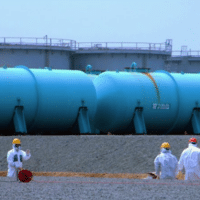-
No, nuking cities did not save lives
It’s oddly encouraging that the New York Post had to bring up its kookiest rightwing propagandist on Friday to argue that nuking Hiroshima and Nagasaki saved lives.
-
Japan: stagnation and confusion
Prime Minister Shigeru Ishiba, who heads the LDP, has intensified his rhetoric on issues appealing to conservatives, the core LDP base.
-
A new documentary highlights one of the most surreal events of World War II: The “Atomic Bowl”
A new documentary that began airing on PBS this month (The Atomic Bowl: Football at Ground Zero—and Nuclear Peril Today) highlights one of the most surreal stories from World War II.
-
As U.S. military prepares for war on China, Silicon Valley tech oligarchs are profiting
The U.S. military is preparing for war on China. It has missile systems in the Philippines aimed at major Chinese cities. Defense Secretary Pete Hegseth says the USA is turning “Japan into a war-fighting headquarters”. Silicon Valley Big Tech oligarchs are making hugely profitable investments.
-
Nobel Peace Prize winner: Gaza like Japan after U.S. atomic bombs
Toshiyuki Mimaki, co-chair of Nihon Hidankyo, the Japanese organization honored with the 2024 Nobel Peace Prize for its anti-nuclear activism, drew comparisons between the plight of children in Gaza and those impacted by the U.S. atomic bombings of Hiroshima and Nagasaki in 1945.
-
U.S. and UK ambassadors to skip Nagasaki memorial amid controversy
The U.S. and UK ambassadors to Japan will not attend the Nagasaki atomic bomb victim memorial on August 9 due to the Nagasaki administration’s decision not to invite the Israeli envoy.
-
U.S. ready to play ‘Tibet card’ – Asian Media report
In Asian media this week: Dangerous turn adds new anti-Beijing flashpoint. Plus: Bangkok banks used to supply Myanmar military; Why Hindu nationalists back Israel; Thais opt for neutrality in great-power war; How to stop China slipping into Japan trap; Online gambling an Indonesian epidemic.
-
Russia overtakes Japan to become the fourth largest economy in the world in PPP terms
The Russian economy has overtaken Japan to become the fourth largest in the world in PPP terms (purchase power parity), according to revised data from the World Bank released at the start of June. As bne IntelliNews reported in August, Russia had already overtook Germany to become the fifth biggest economy in adjusted terms. Hit by multiple shocks […]
-
United States assembles the squad against China
In early April 2024, the navies of four countries—Australia, Japan, the Philippines, and the United States—held a maritime exercise in the South China Sea. Australia’s Warramunga, Japan’s Akebono, the Philippines’ Antonio Luna, and the United States’ Mobile worked together in these waters to strengthen their joint abilities and—as they said in a joint statement—to “uphold the right to freedom of navigation and overflight and respect for maritime rights under international law.”
-
Why Israel Is Not Punished but Cuba Is
The vastly different treatment of Cuba and Israel illustrates the moral bankruptcy of the Western order, an order that is being taken less and less seriously in the global South. North-South relations are tilting, not only economically, but also ideologically. A new era is beginning.
-
Marxist theory in Japan: A critical overview
I. To summarise the reception history of Marx in Japan is no small task.1 In fact, it is essentially impossible to give an adequate overview of one of the deepest, most prolific, and most variegated linguistic repositories of the Marxist tradition. Although it remains remarkably little-known in contemporary European or North American intellectual circles, Marxism […]
-
Chip Wars: Breaking the siege
While the sanctions regime has hit Chinese companies, especially Huawei, hard and exposed weak links in China’s chip supply chain, the last year has seen significant progress by Chinese companies.
-
Israel told U.S. it is modeling Gaza attack on Hiroshima and Nagasaki
“It became evident to U.S. officials that Israeli leaders believed mass civilian casualties were an acceptable price in the military campaign,” The New York Times reported on Monday.
-
Agencies that promote nuclear power are quietly managing its disaster narrative
Let’s start with the total amount of radiation that the Fukushima-Daiichi nuclear power plant STILL contains today. The spent fuel at the site contains 85 times more cesium-137 than Chornobyl and 50,000 to 100,000 times more than the Hiroshima bomb.
-
Oppenheimer Paradox: Power of science, weakness of scientists
The bomb dropped on Hiroshima in 1945 heralded the atomic age and ushered in the military-industrial complex that took over the United States.
-
Atomic bombing of Japan was not necessary to end WWII. U.S. gov’t documents admit it
U.S. government documents admit the atomic bombing of Hiroshima and Nagasaki was not necessary to end WWII. Japan was on the verge of surrendering. The nuclear attack was the first strike in Washington’s Cold War on the Soviet Union.
-
Hiroshima, Nagasaki bombings were needless, said World War II’s top U.S. military leaders
Mythology about these mass civilian slaughters warps thinking about U.S. militarism.
-
Hiroshima-Nagasaki bombing: U.S. domination of post-war world
July 1939, Leo Szilard, the Hungarian physicist and a refugee in U.S., had sought the help of Einstein to persuade the U.S. administration headed by President Roosevelt, to construct an atomic bomb as a counter to an identical programme that, it was then suspected, Nazi Germany had embarked upon.
-
Call to Mutiny
“It has never been true that nuclear war is ‘unthinkable.’ It has been thought and the thought has been put into effect.” —E.P. Thompson
-
Despite warnings, IAEA approves Japan release plan for contaminated Fukushima water
“Piping water into the sea is an outrage. The sea is not a garbage dump,” said one local fisherman earlier this year.

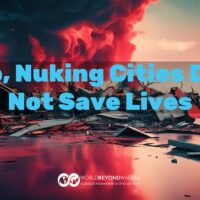

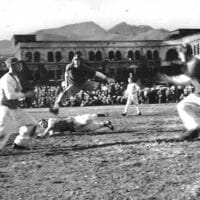
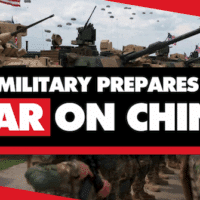

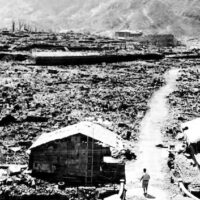
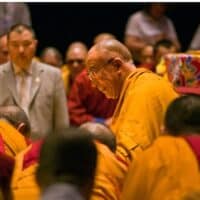
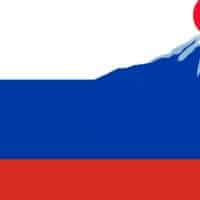
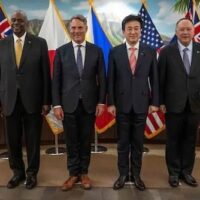
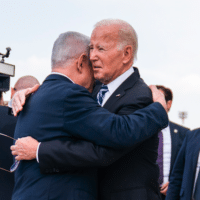

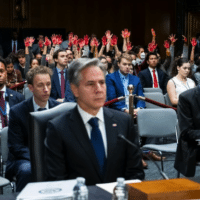
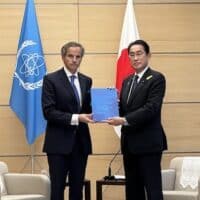
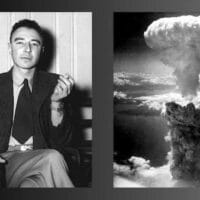
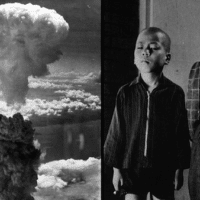
![Man stands amid ruins of Hiroshima. [Source: time.com]](https://mronline.org/wp-content/uploads/2022/08/Screen-Shot-2022-08-09-at-1.10.58-PM-200x200.png)


